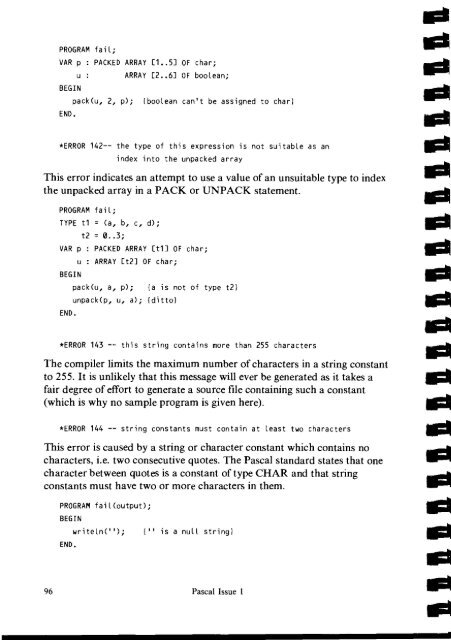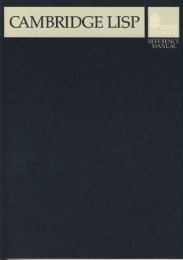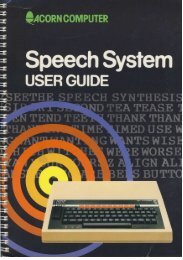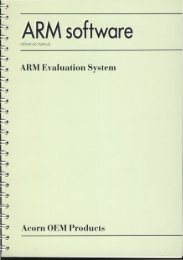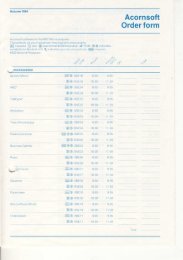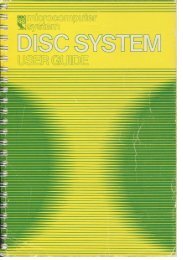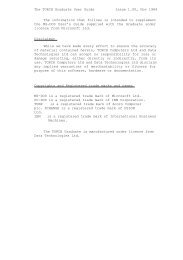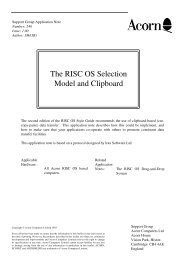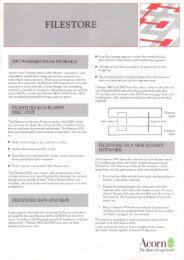ISO Pascal reference manual
ISO Pascal reference manual
ISO Pascal reference manual
Create successful ePaper yourself
Turn your PDF publications into a flip-book with our unique Google optimized e-Paper software.
PROGRAM fail;<br />
VAR p : PACKED ARRAY C1..5] OF char;<br />
u : ARRAY [2..6] OF Boolean;<br />
BEGIN<br />
pack(u, 2, p); [boolean can't be assigned to char}<br />
END.<br />
*ERROR 142-- the type of this expression is not suitable as an<br />
index into the unpacked array<br />
This error indicates an attempt to use a value of an unsuitable type to index<br />
the unpacked array in a PACK or UNPACK statement.<br />
PROGRAM fail;<br />
TYPE t1 = (a, b, c, d);<br />
t2 = 0..3;<br />
VAR p : PACKED ARRAY [t1] OF char;<br />
u : ARRAY [t2] OF char;<br />
BEGIN<br />
pack(u, a, p); (a is not of type t2}<br />
unpack(p, u, a); (ditto}<br />
END.<br />
*ERROR 143 -- this string contains more than 255 characters<br />
The compiler limits the maximum number of characters in a string constant<br />
to 255. It is unlikely that this message will ever be generated as it takes a<br />
fair degree of effort to generate a source file containing such a constant<br />
(which is why no sample program is given here).<br />
*ERROR 144 -- string constants must contain at least two characters<br />
This error is caused by a string or character constant which contains no<br />
characters, i.e. two consecutive quotes. The <strong>Pascal</strong> standard states that one<br />
character between quotes is a constant of type CHAR and that string<br />
constants must have two or more characters in them.<br />
PROGRAM fail(output);<br />
BEGIN<br />
writeln("); {" is a null string}<br />
END.<br />
96 <strong>Pascal</strong> Issue I


